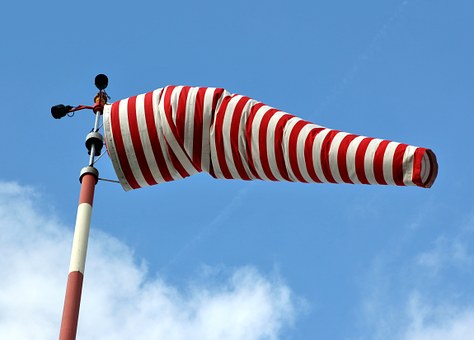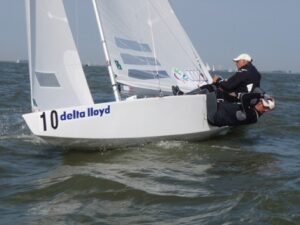

Andrew Palfrey, better known to the worldwide yachting fraternity as “Doggy” will give us the benefit of his vast experience in factoring wind, weather and currents into our sailing and its importance in planning the conduct of your race.
This is part one in a series of excerpts from an interview I did with the high-achieving sailor, olympian and coach.
FREE BOOK – TIPS FROM SAILING LEGENDS
Brett: Doggy, because the interview is primarily about weather and how to use observations to run a race day or regatta strategy, can you tell us how sailors who are looking to get better should go about gathering information and then utilising it to give themselves the best advantage on the racetrack. Perhaps a little history of your weather journey would be really helpful here.
Andrew: This sort of thing has become so much easier in the last few years.
I didn’t start Olympic campaigning until 1998 properly. I was in my thirties. And back then, it was hard, it was difficult. I can’t even remember how we kind of did it back then or probably didn’t do a lot of it.
But these days it’s obviously, it’s a hell of a lot easier on the internet. And it’s like the United States, for example, the NOAA resource, N-O-A-A, I don’t even know what it stands for, National something, something. It’s just a huge resource.
There are so many layers and you can get historical data and so on. Really, I mean, as we know, you really just got to plug in, you know. I’m heading to Nassau in a couple of weeks, just plug in Nassau for historical weather data for December, and it’s there, it’s three clicks away.
So I think the challenge is to decipher that and to filter through that and to figure out what the important information is because there’s a lot of stuff there that, it’s not rubbish but it’s just not relevant to what you need.
Brett: How much information do you gain from fellow competitors about venues, especially those that you have raced at previously or from locals such as fishermen who may have relevant observations that you can learn from?
Andrew: I guess through this lifetime of sailing, we gain a network of friends, or at least acquaintances. We tend to go back to the same sorts of places, the same sorts of locations, year after year. You’ll know someone, and that person will know someone.
My experience, like I know for sure when I get contacted about the weather in a place I’m living, I don’t mind spending a little bit of time or whatever, with the person, if I know they’re kind of quite keen. And I kind of like that human-human interaction, that side of it. So I think that a lot of it comes back to that.
But in terms of in the pre, sort of getting ready to go away side of things, make contact with that person and your questions would be, “Where do you look, what do you look at for your weather for that location?” And they might say, “I look at Windguru is generally the best here, or this, or that.” And all of a sudden, bang, you’ve just saved yourself a whole lot of time.
AUSSIE SAILORS – BOOK AND BONUSES
Brett: Are you asking about what is likely to happen at the time of the regatta or are you delving in to history of previous years at that time of the year and how far out do you plan?
Andrew: I think it goes back further than that, further than the day. It might even be as fundamental as even several months out. You might make some decisions on equipment or where you want your, for example, the Etchells Worlds next year.
It’s in San Francisco and we’ve all got time…time is a limited resource, we’re all in the same boat there, it doesn’t matter how big your budget is. Time is the same for everyone. So you want to make the right decisions early so you’re not spending your time going down the wrong path.
A lot of people are already saying, “Oh, San Francisco. It’s going to be windy.” But the fact is, it’s very late in the summer that we go there and there was a regatta this year, at the same time, that was three out of four days were light air. And so, that information is critical.
You could turn up in San Francisco or you could sort of get to San Francisco two weeks before the Worlds, let’s say, quite well-prepared, well-resourced, all that sort of thing.
And you’ll start talking to locals and they might say, “Oh, no, no, no. It’s actually, there’s a fair chance we might get some light air here.” And you’re thinking, “Shit! I’ve invested all…I’ve exactly invested all this…” It might even be, I mean, you might have your light sails there. You’ve shipped them over or whatever you did but you haven’t spent time using them.
So harping back to these decisions we made months before, they can… Probably, a lot of people don’t realize, even as they come away from these events, that those decisions were probably more of an impact than what people realize.


